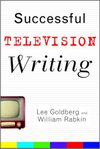There’s a fascinating and informative discussion going on (as usual) at Joe Konrath’s blog. Today my friend is talking about basketing or "cross-collateralization" deals, which he had on his first three books.
My royalty statements confirm this. As of my statement of June 2006, both Whiskey Sour and Bloody Mary have earned out their advances. They did this on the paperback releases.
Unfortunately,
I won’t see any royalties until next year, because of basketing.
Basketing is a form of joint accounting. When books are basketed in a
contract, the publisher doesn’t pay out royalties until all of the
books have earned out. So the earnings from Whiskey and Bloody are
paying the advance for Rusty Nail. Which is fine. By next year, I should be in a royalty situation. This is a good thing.
Author PJ Parrish left a comment, noting in part:
This cross-collateral accounting is, I am told, simply an easy way for
a publisher to withhold money due to a writer while spreading its risk
over several books.
For example, you might have two books with
$10,000 advances, but if one does great and the second poorly, you
still won’t see any royalty money until the entire $20,000 advance
earns out. Why shouldn’t each book stand on its own merits? Why should
an author be penalized for the success of one and not another when so
many factors that go into that success are out of the author’s hands?
I’m sorry, but I don’t buy it and I don’t think any author should.
I’m with her on this. My DIAGNOSIS MURDER books are cross-collateralized and so are my MONKS.
It’s standard in multiple book tie-in deals and not something I had the
leverage to exclude from my contract. I wish I could. It benefits the
publisher and screws the writer. Which brings me to nit-picking one of
Joe’s comments:
I’ve said, from the very beginning of my career, that my goal is to make money for my publisher. For my first two books, I’m doing just that. It will be interesting to see where it takes me."
My
goal is to make money for me. Obviously, that means making money for
my publisher, too. But enriching my publisher and enriching myself
should go hand-in-hand. That doesn’t happen in cross-collateralization
deals or when you spend your advances…and then some…on promotion.
It might pay-off in the long run, but if you want to make a living as a
writer, it’s a delicate balance. Joe made another comment that I don’t entirely agree with:
Royalties are like found money. You’re earning on work you did years
ago. Your publisher also likes royalties. They no longer have to spend
marketing dollars on your backlist, but it keeps generating income.
Earning out an advance is a good indicator that the book made a profit,
and the longer it stays in print, the more profitable it becomes.
I disagree with his first line but I agree with everything else. Royalties are not found money, it’s money you’ve earned, it’s how you make a living. And in cross-collateralization deals, the publisher is keeping your money from you.
Royalties are where the real money for an author is over the long run. Yes, you have to promote your books to sell enough to generate royalties, but again…it’s a balance.
If you’re making a living as
a writer, advances and royalties (or script fees and residuals in TV)
are how you pay the bills. If you spend your advance on promotion, and
your royalties are caught up in cross collaterization, you are
succeeding in making money for the publisher…and screwing yourself.
I
am not saying this is the case with Joe, and I certainly think
self-promotion is important (just look at me at what I do), but I think it’s a mistake for newbie
writers to necessarily follow Joe’s example unless they have a
lucrative day job.

